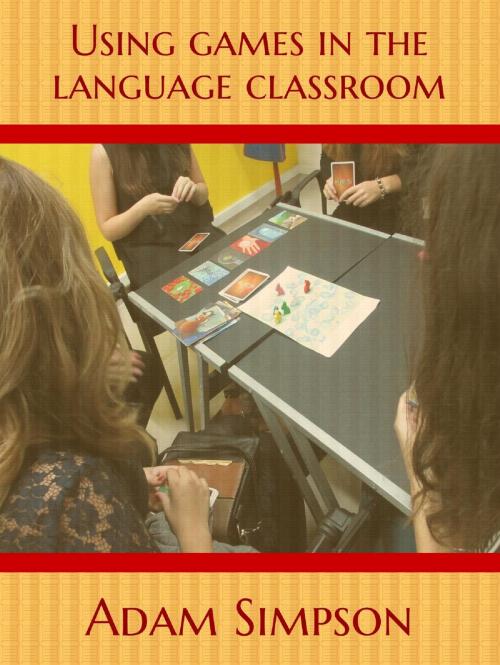Using Games in the Language Classroom
Nonfiction, Reference & Language, Study Aids, ESL, Foreign Languages| Author: | Adam Simpson | ISBN: | 9781310144615 |
| Publisher: | Adam Simpson | Publication: | March 13, 2015 |
| Imprint: | Smashwords Edition | Language: | English |
| Author: | Adam Simpson |
| ISBN: | 9781310144615 |
| Publisher: | Adam Simpson |
| Publication: | March 13, 2015 |
| Imprint: | Smashwords Edition |
| Language: | English |
The justification for using games in the classroom has been well demonstrated as benefiting students in a variety of ways. These benefits range from cognitive aspects of language learning to more co-operative group dynamics. The benefits are as follows:
Affective:
- games lower the affective filter
- they encourage creative and spontaneous use of language
- they also promote communicative competence
- games are both motivating and fun
Cognitive:
- games reinforce learning
- they both review and extend learning
- games focus on grammar in a communicative manner
Class Dynamics:
- games are extremely student centered
- the teacher acts only as facilitator
- games build class cohesion
- they can foster whole class participation
- games promote healthy competition
Adaptability:
- games can be easily adjusted for age, level, and interests
- they utilize all four skills
- games require minimum preparation after the initial development stage
You can successfully use games in many ways, such as for a quick review, after material has been covered or as a cool-down activity at the end of a lesson to practice what has been covered (as well as to inject an element of fun). You could also use a game to practice specific new language in groups or pairs for a limited time, as a short introduction to new vocabulary or a concept, as a prompt for writing work, even as a link into a new part of the lesson. Games may even be used merely to change the pace of a lesson.
The justification for using games in the classroom has been well demonstrated as benefiting students in a variety of ways. These benefits range from cognitive aspects of language learning to more co-operative group dynamics. The benefits are as follows:
Affective:
- games lower the affective filter
- they encourage creative and spontaneous use of language
- they also promote communicative competence
- games are both motivating and fun
Cognitive:
- games reinforce learning
- they both review and extend learning
- games focus on grammar in a communicative manner
Class Dynamics:
- games are extremely student centered
- the teacher acts only as facilitator
- games build class cohesion
- they can foster whole class participation
- games promote healthy competition
Adaptability:
- games can be easily adjusted for age, level, and interests
- they utilize all four skills
- games require minimum preparation after the initial development stage
You can successfully use games in many ways, such as for a quick review, after material has been covered or as a cool-down activity at the end of a lesson to practice what has been covered (as well as to inject an element of fun). You could also use a game to practice specific new language in groups or pairs for a limited time, as a short introduction to new vocabulary or a concept, as a prompt for writing work, even as a link into a new part of the lesson. Games may even be used merely to change the pace of a lesson.















